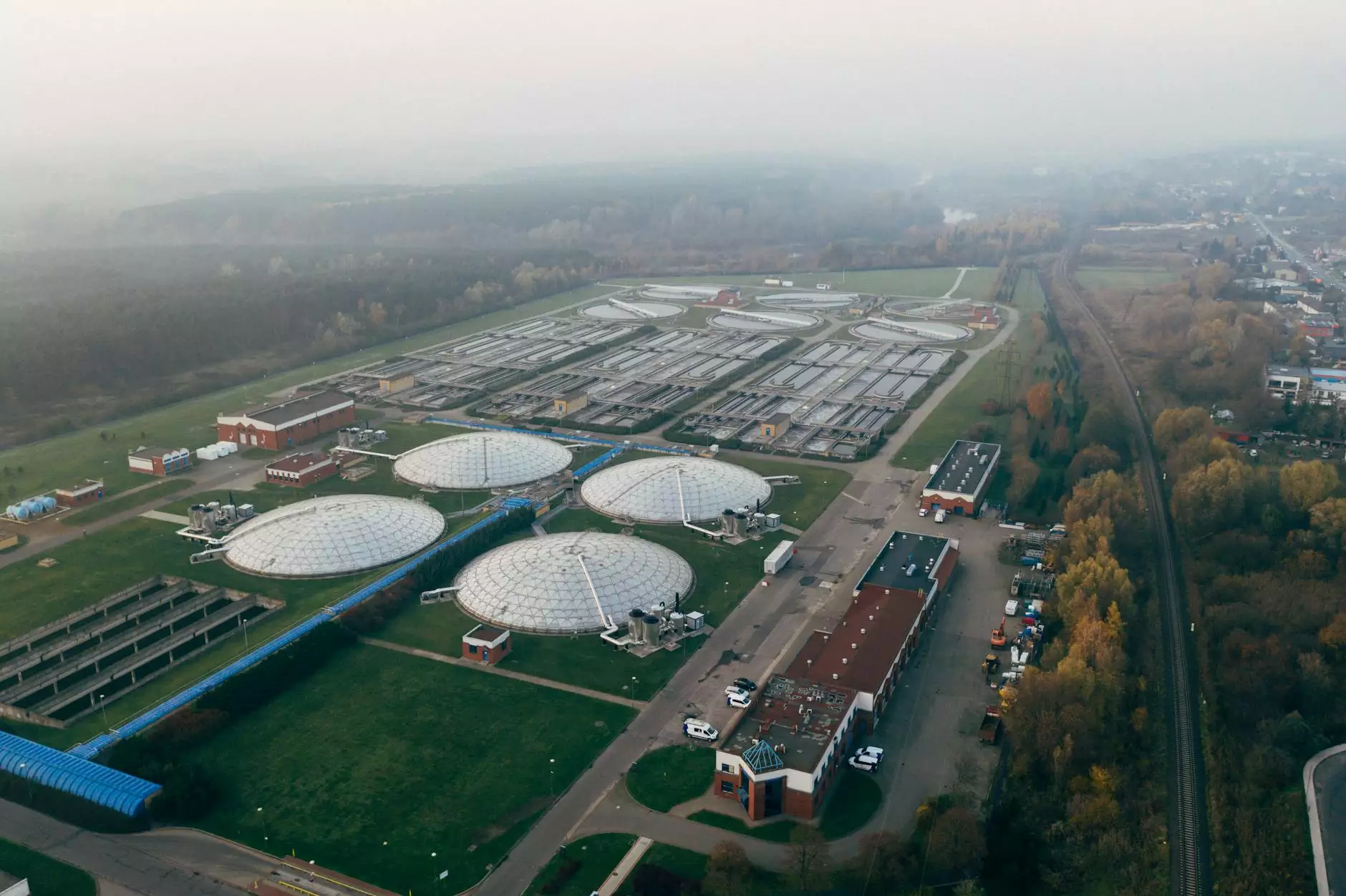Industrial RO Water Treatment: Ensuring Pure Water for Your Business

In the modern industrial landscape, water purification has become more crucial than ever. As industries strive to meet stringent quality standards and environmental regulations, the demand for effective water treatment solutions has surged. One of the most effective methods for achieving high-quality water purification is through industrial RO water treatment. This method not only enhances the quality of water used in various processes but also contributes to sustainability and cost-effectiveness.
What is Industrial RO Water Treatment?
Reverse Osmosis (RO) is a technology that utilizes a semipermeable membrane to remove ions, molecules, and larger particles from drinking water. In the context of industrial applications, industrial RO water treatment systems are designed to handle large volumes of water with high efficiency and efficacy. They are particularly valuable for industries that require purified water for production processes, such as pharmaceuticals, food and beverage, electronics manufacturing, and power generation.
How Does Reverse Osmosis Work?
The process of reverse osmosis involves several key stages:
- Pre-filtration: Before the water reaches the RO membrane, it undergoes pre-filtration to remove larger particles and sediments. This step is crucial to protect the RO membrane from clogging and damage.
- Pressurization: The filtered water is then pressurized using high-pressure pumps to overcome the osmotic pressure and allow water to flow through the membrane.
- Separation: As the water passes through the semipermeable RO membrane, contaminants, including salts, bacteria, and other impurities, are effectively removed, producing purified water known as permeate.
- Post-filtration: The final stage involves post-filtration, which can include additional processes such as UV treatment or carbon filtration to ensure the highest quality of purified water is achieved.
The Importance of Water Purification in Industries
Water is an essential resource for countless industries. Its quality directly impacts product quality, operational efficiency, and environmental responsibility. Here are some reasons why industrial RO water treatment is vital:
- Quality Assurance: Ensuring the purity of water helps in maintaining consistent product quality. Contaminated or subpar water can lead to defective products and damage to brand reputation.
- Process Efficiency: High-quality water can enhance operational efficiency by preventing equipment scaling, corrosion, and fouling, allowing machinery to operate at optimal levels.
- Compliance and Sustainability: As regulatory frameworks become stricter, industries must comply with environmental standards. Efficient water treatment processes help mitigate pollution and conserve water resources.
- Cost Savings: Using purified water reduces the need for chemical additives and maintenance costs associated with equipment damage due to poor water quality.
Industries that Benefit from Industrial RO Water Treatment
Several industries have significantly benefited from implementing industrial RO water treatment systems:
1. Pharmaceutical Industry
In the pharmaceutical sector, water quality is critical, as any impurities can affect drug formulation and safety. RO water treatment ensures that the water used in production meets strict health and safety regulations.
2. Food and Beverage Industry
Water used in the food and beverage industry must be free of contaminants to ensure consumer safety. Industrial RO systems help producers maintain high standards of hygiene and quality in their products.
3. Electronics Manufacturing
The electronics sector requires ultra-pure water for manufacturing processes. Even small amounts of impurities can affect product performance, making RO water treatment an essential part of production.
4. Power Generation
Power plants utilize RO-treated water for cooling and steam generation processes. High purity water helps prevent scaling in boilers and cooling systems, reducing maintenance costs and improving efficiency.
Choosing the Right Industrial RO Water Treatment System
When selecting an industrial RO water treatment system, several factors should be considered:
- Water Quality: Assess the quality of the source water to determine the appropriate system specifications.
- Capacity: Choose a system that can handle the required flow rate and volume of water for your operations.
- Cost: Evaluate the initial investment and operating costs, including maintenance, energy consumption, and replacement parts.
- Technology: Consider advanced features such as automation, remote monitoring, and energy recovery options to enhance efficiency.
- Vendor Reputation: Partner with a reputable supplier like Bimak Kimya that has experience in designing and implementing industrial water treatment solutions.
Common Challenges in Industrial RO Water Treatment
While industrial RO water treatment is highly effective, it does come with its own set of challenges:
1. Membrane Fouling
One of the most common issues is membrane fouling, where particles, bacteria, and scaling compounds accumulate on the RO membrane, reducing its efficiency. Regular cleaning and pre-treatment of source water can help mitigate this.
2. Chemical Compatibility
It's essential to use chemicals that are compatible with RO membranes. Incorrect chemical use can damage the membranes, leading to increased costs and reduced water quality.
3. Energy Consumption
RO systems can be energy-intensive, particularly in large industrial applications. Implementing energy recovery devices can significantly reduce operational costs.
Future Trends in Industrial RO Water Treatment
The landscape of water treatment is evolving rapidly, with several trends shaping the future of industrial RO water treatment:
- Smart Technology: The incorporation of IoT devices and smart sensors will enable real-time monitoring and automation, improving system performance and reducing maintenance costs.
- Sustainability Practices: As industries focus more on sustainable practices, the development of more efficient, energy-saving RO systems is expected to take center stage.
- Advanced Membrane Technology: Innovations in membrane materials and designs will enhance the effectiveness of RO systems, allowing for lower maintenance and longer operational lifespans.
Conclusion
In today's industrial environment, the importance of clean, purified water cannot be overstated. Industrial RO water treatment stands out as a leading solution to achieve high-quality water for a variety of applications. By investing in effective water treatment solutions, businesses not only ensure compliance with regulations but also enhance their overall operational efficiency and product quality.
For businesses looking for comprehensive water purification services, partnering with experts like Bimak Kimya ensures that you implement the best practices and maintain high standards in your operations.









